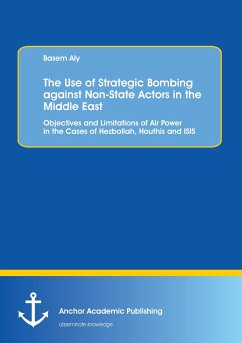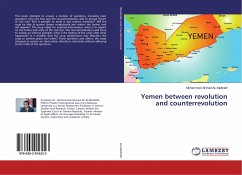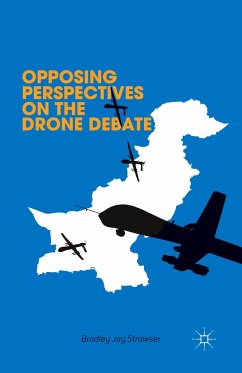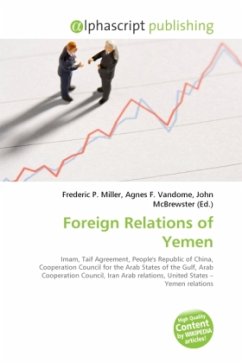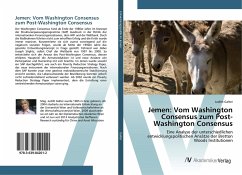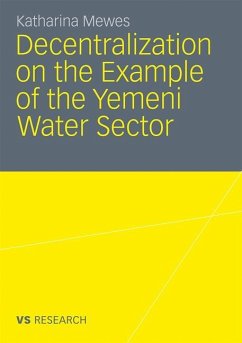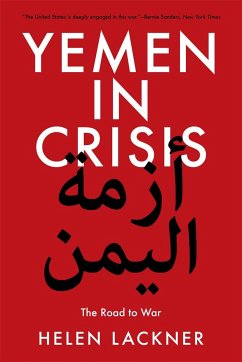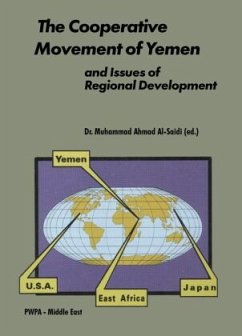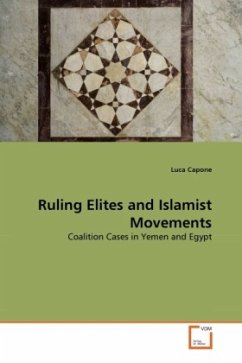
Ruling Elites and Islamist Movements
Coalition Cases in Yemen and Egypt
Versandkostenfrei!
Versandfertig in 6-10 Tagen
32,99 €
inkl. MwSt.

PAYBACK Punkte
16 °P sammeln!
Why do Islamist groups ally with non-Islamist ruling elites? Islamists, people who want to islamize society by applying Islamic law (sharia) to all spheres of social, political and economic life, are often seen as opponents of existing regimes. They oppose regimes which tend to secularize their societies. However, particularly in transitional societies, Islamist groups have been shown to establish close ties with non-Islamists ruling elites which often take advantage of their support but subsequently suppress them, as soon as they outgrow them and gain a strong-hold on power. Given that Islami...
Why do Islamist groups ally with non-Islamist ruling elites? Islamists, people who want to islamize society by applying Islamic law (sharia) to all spheres of social, political and economic life, are often seen as opponents of existing regimes. They oppose regimes which tend to secularize their societies. However, particularly in transitional societies, Islamist groups have been shown to establish close ties with non-Islamists ruling elites which often take advantage of their support but subsequently suppress them, as soon as they outgrow them and gain a strong-hold on power. Given that Islamists are aware of the likelihood of suppression once they are no longer an asset, why do they accept coalitions with authoritarian governments? Is it for ideology or for personal interests and thirst for power? This work aims to answer these questions by studying and analyzing two cases: the Islamist students in Egypt during the 1970s and the Islah Party in Yemen during the 1990s. This book targets those interested in social movement theory and political Islam, democratization and authoritarianism.



